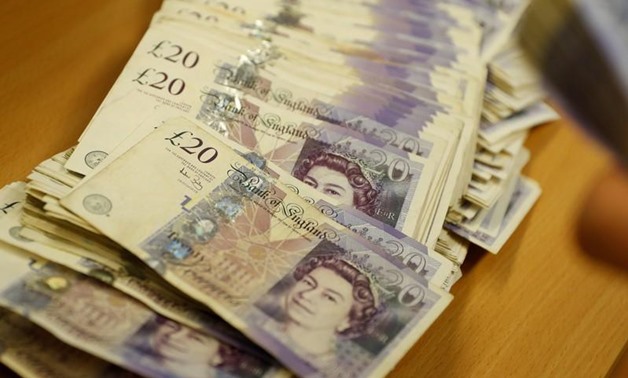
British Pound Sterling banknotes are seen at the Money Service Austria company's headquarters in Vienna, Austria, November 16, 2017. REUTERS/Leonhard Foeger
LONDON - 11 March 2019: Sterling fell for a ninth consecutive day on Monday as talks between Britain and the European Union were at an impasse ahead of a vote on Brexit in parliament that Prime Minister Theresa May is expected to lose.
No breakthrough emerged from weekend talks between the UK government and the EU over changing parts of the Brexit agreement related to the Irish border.
Lawmakers will vote on Tuesday on the withdrawal agreement May negotiated with Brussels last year and which they overwhelmingly rejected in January.
With Britain due to leave the EU in 18 days, the pound has weakened as doubts swirl over how, or possibly even if, Britain’s exit will take place.
Most economists expect Brexit to be delayed by a few months and the two sides to eventually agree a free-trade deal, according to a Reuters poll.
“A delay to Brexit would be modestly positive for sterling and UK risk assets, reflecting the further reduction of the implied risk of hard Brexit,” said Kallum Pickering, an economist at Berenberg.
“However, it would not completely eliminate the hard Brexit risk which could still come at the end of a delay or as a result of a second referendum,” he added.
At 0900 GMT sterling was down 0.2 percent at $1.3,a three-week low. It was also struggling against the euro at 86.52 pence, down 0.3 percent on the day.
If May loses Tuesday’s vote she will face another vote on Wednesday on whether parliament wants to leave the EU without a deal, with a majority expected to refuse the ‘no-deal’ scenario.
A third vote would then be tabled for Thursday on whether the UK should request from the EU a ‘limited’ extension of the March 29 Brexit date.
Traders are expecting big swings in the currency around this week’s votes, according to a sharp rise in one-week implied volatility.
One-week implied volatility measures demand for options to hedge against big currency swings. A higher percentage reflects greater expectations of currency movements over the next seven days.
The Financial Times reported late on Sunday that the Bank of England had asked UK banks to triple their liquid assets in the three months around Brexit as a precaution for any hiatus in interbank lending.

Comments
Leave a Comment